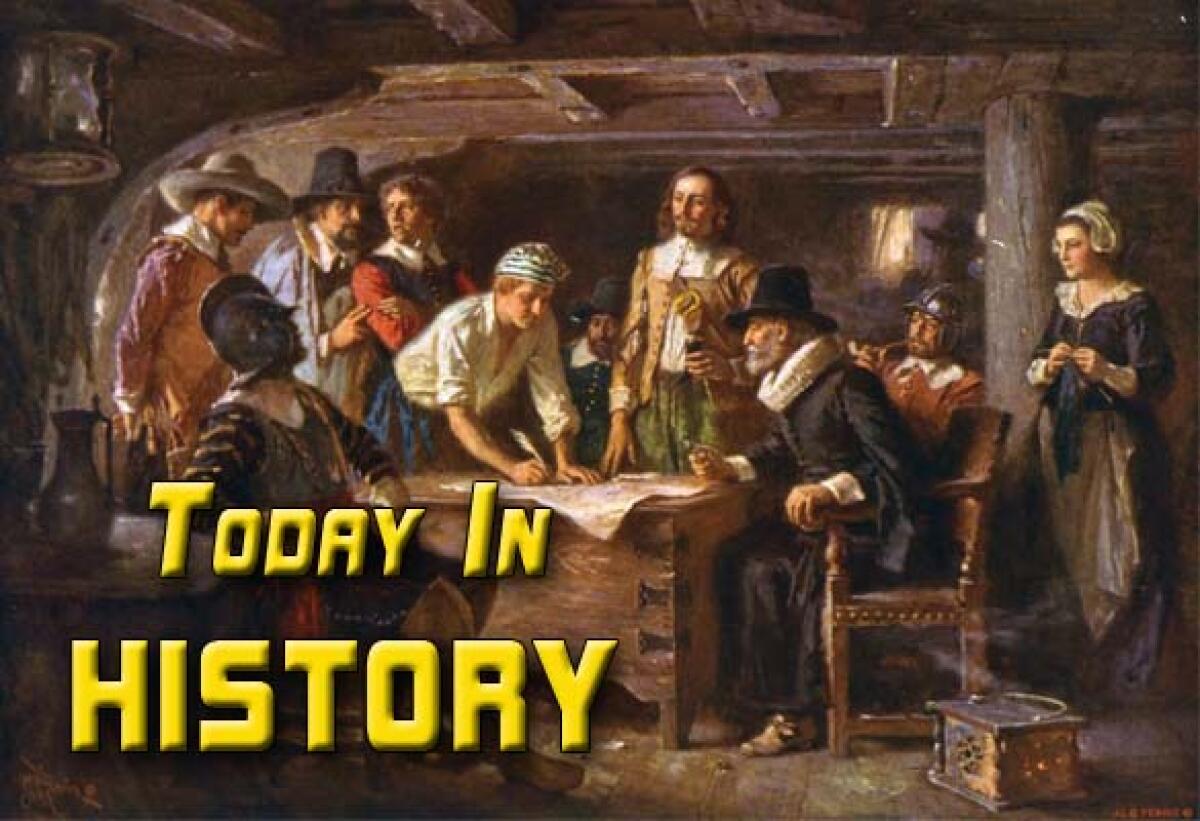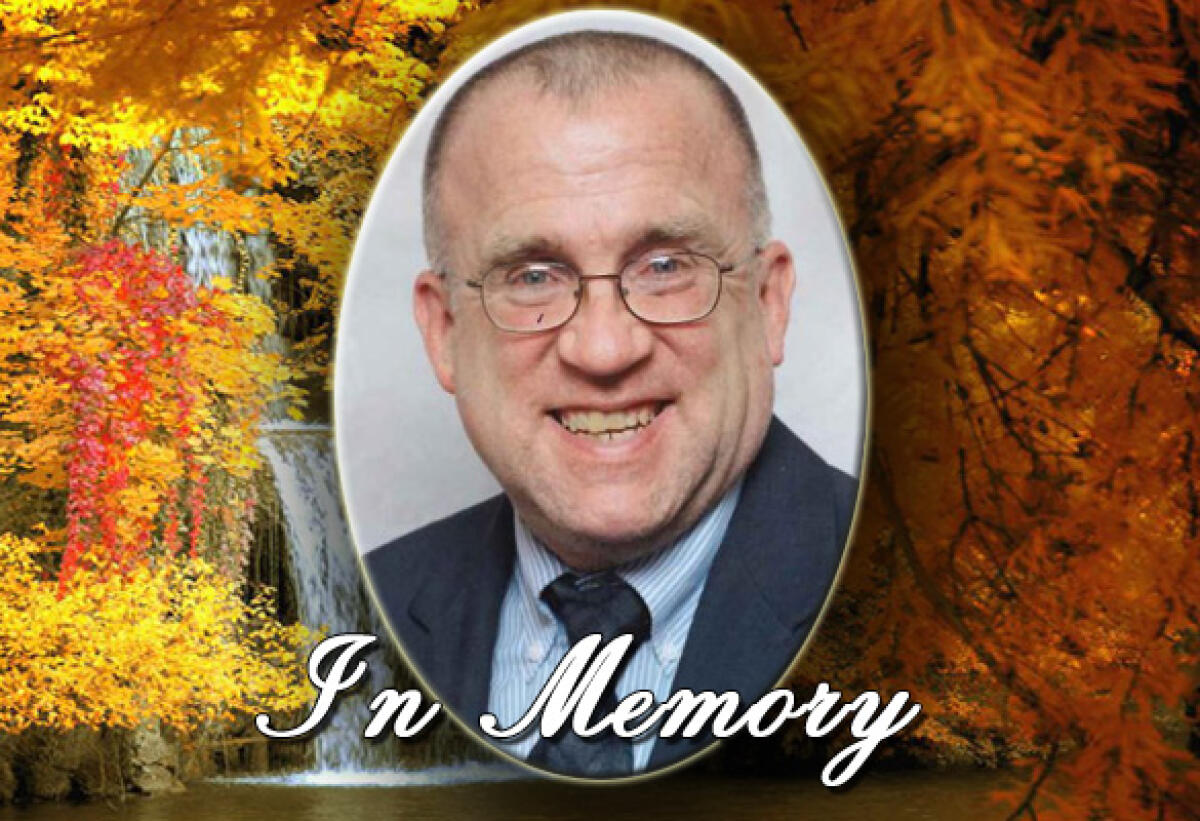- Wednesday, 11 February 2026
- Have a HOT TIP? Call 704-276-6587 or E-mail us At LH@LincolnHerald.com
Today In History – November 21
There are 40 days remaining until the end of the year.

Today in History in 1620 the Pilgrim Fathers sign the Mayflower Compact near Cape Cod, in 1789 North Carolina becomes the 12th State of the United States; and in 1877 Thomas Edison announces that he has invented the phonograph.
The On This Day In History archives at “Simple English Wikipedia, The Free Encyclopedia” contains over 200,000 events, birthdays and deaths from 6,000 years of history. Here is a roundup of a few of them:
November 21 is the 325th day of the year (326th in leap years) in the Gregorian calendar. There are 40 days remaining until the end of the year.
EVENTS
235 - Antenus succeeds Pontian as Pope.
1386 - Timur of Samarkand captures and sacks the Georgian capital city of Tbilisi.
1620 – The Pilgrim Fathers sign the Mayflower Compact near Cape Cod.
1694 – French philosopher Voltaire is born.
1710 - The Fourth Russo-Turkish War begins.
1783 – The Montgolfier brothers make the first hot-air balloon flight.
1789 – North Carolina becomes the 12th State of the US.
1861 - American Civil War: Confederate President Jefferson Davis appoints Judah Benjamin as Secretary of War.
1877 - Thomas Edison announces that he has invented the phonograph.
1894 - First Sino-Japanese War: Port Arthur, Manchuria, falls to the Japanese.
1905 - Albert Einstein's paper Does the Inertia of a Body depend on Its Energy Content ? is published in the journal Annalen der Physik.
1916 – A mine explodes and sinks the British hospital ship HMHS Britannic in the Aegean Sea, killing 30 people.
1916 - Emperor Franz Joseph I of Austria dies aged 86. His nephew, Charles I of Austria, becomes the last Emperor of the Austro-Hungarian Empire.
1918 – The Flag of Estonia is formally adopted.
1920 - Irish War of Independence: In Dublin, 31 people are killed in what becomes known as "Bloody Sunday". They are 14 British informants, 14 Irish civilians and 3 Irish Republican Army prisoners.
1922 - Rebecca Latimer Felton becomes the first female United States Senator, though she has to leave office a day later. She is also the oldest US Senator to take office (at age 87), the shortest-serving US Senator ever, and the last US Senator to have owned slaves.
1942 - The completion of the Alaska Highway is celebrated.
1945 - The United Auto Workers strike at 92 General Motors plants in 50 cities to back up worker demands for a 30% pay rise.
1950 - Two Canadian National Railway trains collide in Northeastern British Columbia, killing 21 people.
1953 – The British History Museum announces that the Piltdown Man skull is a hoax.
1962 - The Chinese People's Liberation Army declares a unilateral ceasefire in the Sino-Indian War.
1963 - John F. Kennedy arrives in Dallas, Texas, a day before his assassination in the city.
1964 – The Verrazano-Narrows Bridge is opened to traffic over the Hudson River.
1969 – President of the United States Richard Nixon and Prime Minister of Japan Eisaku Sato agree to the return of Okinawa to Japan in 1972. The United States keeps its right to have military bases on the island, as long as they are nuclear-free.
1972 - South Korean voters support a new constitution
1974 – In the United Kingdom, the Birmingham Pub Bombings kill 21 people.
1979 - The United States Embassy in Islamabad, Pakistan, is attacked by a mob, and set on fire, killing four people.
1980 - In the TV series Dallas, the episode to find out who shot JR Ewing is first broadcast, setting the record-high for a US TV audience.
1980 - Fire breaks out at the MGM Grand Hotel in Paradise, Nevada, kills 87 people.
1986 - Oliver North starts shredding documents relating to his and Ronald Reagan's roles in the Iran-Contra Affair.
1995 - The Dayton Peace Agreement is signed in Dayton, Ohio, ending 3 1⁄2 years of war in Bosnia and Herzegovina.
1999 - China's first spacecraft, Shenzhou 1, lands safely back on Earth.
2002 – NATO invites Bulgaria, Romania, Slovakia, Slovenia, Estonia, Latvia and Lithuania to become members.
2004 – In Ukraine's Presidential election, Viktor Yanukovych is declared as the winner, leading to the Orange Revolution, after suspicions of vote-rigging. Many people protest in favour of the defeated candidate Viktor Yushchenko, who wins the re-run of the election on December 26.
2004 - The Caribbean islands of Dominica and Guadeloupe are hit by a strong earthquake.
2005 – Prime Minister of Israel Ariel Sharon founds a new political party, the Kadima Party.
2006 - Anti-Syrian Lebanese politician Pierre Amine Gemayel is murdered in downtown Beirut.
2009 – A mine explosion in Heilongjiang province in northern China kills 108 people.
2010 - Eurozone Debt Crisis: It is announced that the Republic of Ireland requires a bail-out from the Eurozone.
2012 - The only surviving perpetrator of the 26 November 2008 Mumbai attacks, Ajmal Kasab, is executed.
2012 - After a week of war between Israel and Gaza, an agreement is reached on a truce.
2013 - The roof of a supermarket collapses in Riga, Latvia, killing 54 people, including three firefighters.
2013 - Euromaidan: Protests begin in Ukraine after President Viktor Yanukovych abandons a deal with the EU over closer relations with Russia.
2017 - A bomb attack on a mosque in Mubi, Adamawa State, North-eastern Nigeria, kills 50 people.
2017 - Robert Mugabe resigns as President of Zimbabwe, after an impeachment process was started against him. He had been in power for 37 years (Prime Minister from 1980 to 1987 and President since 1987).


 Lincoln Herald Staff
Lincoln Herald Staff















